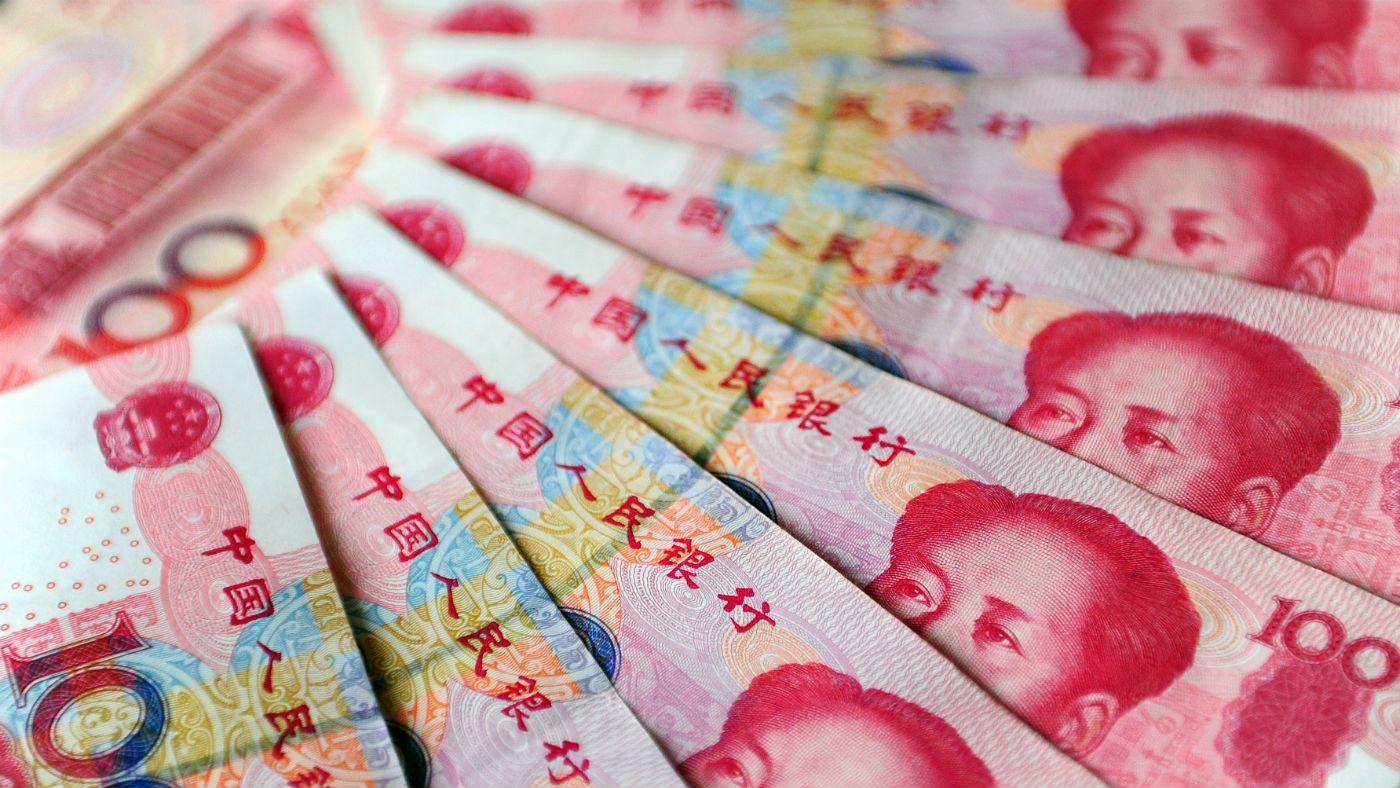What is China doing to boost its slumping economy?
As growth slides to 30-year low central bank embarks on series of corrective steps

A free daily email with the biggest news stories of the day – and the best features from TheWeek.com
You are now subscribed
Your newsletter sign-up was successful
China has cut its lending rates as the country grapples with a slumping economy and protracted trade war with the US.
On Wednesday, the People’s Bank of China cut its one-year loan prime rate (LPR) and five-year LPR by five basis points from 4.20% to 4.15% and from 4.85% to 4.8% respectively.
Reuters says the move was “widely expected”, but with growth sliding to near 30-year lows and a partial trade deal with the United States proving elusive, China has been forced to “slowly pick up its tempo of policy easing in recent weeks, with authorities pushing banks to keep supporting cash-strapped small- and medium-sized businesses”.
The Week
Escape your echo chamber. Get the facts behind the news, plus analysis from multiple perspectives.

Sign up for The Week's Free Newsletters
From our morning news briefing to a weekly Good News Newsletter, get the best of The Week delivered directly to your inbox.
From our morning news briefing to a weekly Good News Newsletter, get the best of The Week delivered directly to your inbox.
On Monday, the central bank made a surprise reduction in another key short-term rate, the seven-day reverse repurchase rate, the first in more than four years, according to Refinitiv.
A day later, central bank governor Yi Gang said Beijing would step up credit support and lower real lending rates.
–––––––––––––––––––––––––––––––For a round-up of the most important business stories and tips for the week’s best shares - try The Week magazine. Start your trial subscription today –––––––––––––––––––––––––––––––
The series of rate cuts are a “reassuring sentiment signal” that the Chinese central bank is still willing to step up credit support for businesses despite a real estate bubble and rising debt levels, Stephen Innes, chief Asia market strategist at AxiTrader, told CNN.
A free daily email with the biggest news stories of the day – and the best features from TheWeek.com
The global debt load has surged by $78trn since 2008, and China alone has accounted for 40% of the increase, according to a recent report by the Institute of International Finance (IIF).
But rather than introduce large-scale policy measures to counter an ongoing economic slowdown, Beijing “has instead taken a series of small steps to fine-tune policy, indicating it believes growth could bottom out next year”, says the South China Morning Post.
It adds that “while many economists still expect Chinese growth to continue slowing next year, some now believe that if a trade war truce can be agreed with the United States, then growth could stabilise around 6% next year and even rebound slightly”.
CNN says “the central bank faces a balancing act, however, with China’s consumer inflation on the rise. Lower interest rates tend to increase inflationary pressures, as they make borrowing cheaper and cause people to spend more”.
-
 Sepsis ‘breakthrough’: the world’s first targeted treatment?
Sepsis ‘breakthrough’: the world’s first targeted treatment?The Explainer New drug could reverse effects of sepsis, rather than trying to treat infection with antibiotics
-
 James Van Der Beek obituary: fresh-faced Dawson’s Creek star
James Van Der Beek obituary: fresh-faced Dawson’s Creek starIn The Spotlight Van Der Beek fronted one of the most successful teen dramas of the 90s – but his Dawson fame proved a double-edged sword
-
 Is Andrew’s arrest the end for the monarchy?
Is Andrew’s arrest the end for the monarchy?Today's Big Question The King has distanced the Royal Family from his disgraced brother but a ‘fit of revolutionary disgust’ could still wipe them out
-
 Epstein files topple law CEO, roil UK government
Epstein files topple law CEO, roil UK governmentSpeed Read Peter Mandelson, Britain’s former ambassador to the US, is caught up in the scandal
-
 Iran and US prepare to meet after skirmishes
Iran and US prepare to meet after skirmishesSpeed Read The incident comes amid heightened tensions in the Middle East
-
 EU and India clinch trade pact amid US tariff war
EU and India clinch trade pact amid US tariff warSpeed Read The agreement will slash tariffs on most goods over the next decade
-
 Israel retrieves final hostage’s body from Gaza
Israel retrieves final hostage’s body from GazaSpeed Read The 24-year-old police officer was killed during the initial Hamas attack
-
 China’s Xi targets top general in growing purge
China’s Xi targets top general in growing purgeSpeed Read Zhang Youxia is being investigated over ‘grave violations’ of the law
-
 Panama and Canada are negotiating over a crucial copper mine
Panama and Canada are negotiating over a crucial copper mineIn the Spotlight Panama is set to make a final decision on the mine this summer
-
 Why Greenland’s natural resources are nearly impossible to mine
Why Greenland’s natural resources are nearly impossible to mineThe Explainer The country’s natural landscape makes the task extremely difficult
-
 Iran cuts internet as protests escalate
Iran cuts internet as protests escalateSpeed Reada Government buildings across the country have been set on fire